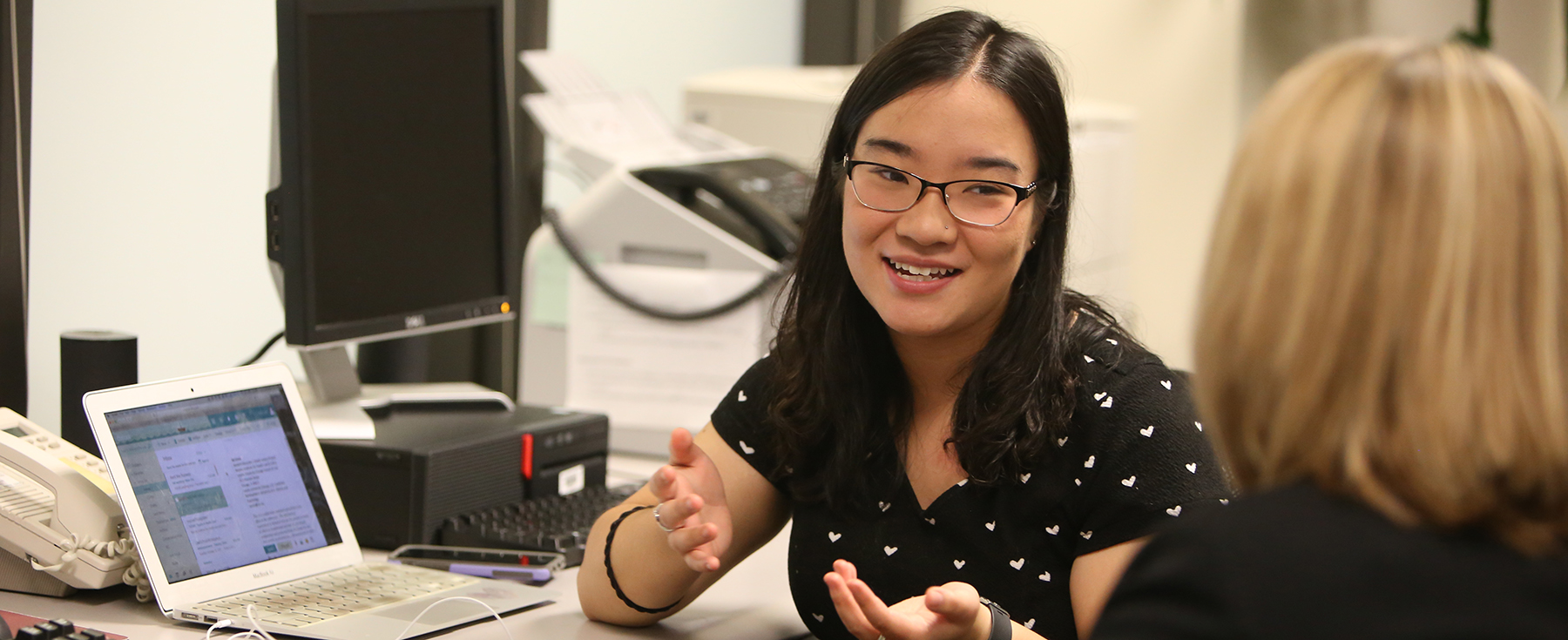Real-world experience

Real-world experience
Sei Unno, a 2L at Loyola with undergraduate majors in history and psychology, enrolled this past fall in the School of Law’s nationally recognized Health Justice Project to gain practical training as a student clinician and to help those in need. The Health Justice Project, one of Loyola’s six in-house legal clinics, is an interdisciplinary medical-legal partnership that works to identify and resolve the social and legal issues that negatively affect the health and well-being of vulnerable populations.
"The Health Justice Project emphasizes a holistic approach to assisting low-income clients with their legal problems," says Sei Unno, who is considering a legal career in health law. "Students not only address clients’ legal problem, but also the environmental, emotional, and societal issues that compound or influence their legal issues."
Learning by doing
Each semester students enrolled in the Health Justice Project, a component of Loyola’s nationally ranked Beazley Institute for Health Law and Policy, learn critical lawyering skills through a combination of a seminar class, intensive case supervision, and collaboration with partner organizations LAF and Erie Family Health Center.
"Through my experiences as a student clinician, I learned how to address social systems of oppression both from an individual perspective and as an upstreamist, which means that we must look to the root of the health-care related problem and focus on prevention. At first I had some reservations about whether a clinical environment was right for me. But the hands-off, empowering supervision model that the Health Justice Project follows challenged me to face those doubts and helped me build confidence in my abilities as a law student beyond the clinic," she says.
“The best way I can describe the supervision model is that it is ‘free-range.’ Under the supervision of an attorney, I am free to explore my own way of approaching the facts and my clients’ legal problems. This has allowed me to learn from my mistakes and determine the best way to approach individual problems—not just to copy-paste from those with more experience.”
Taking the next step
Unno is currently seeking a health law-related internship for summer 2018. She hopes to apply the skills she has gained from the Health Justice Project in client-centered lawyering and upstreamist practices.
“Working as a student clinician at Loyola was both challenging and rewarding—I gained invaluable lawyering skills while helping some of the most vulnerable members of our community.”
Sei Unno, a 2L at Loyola with undergraduate majors in history and psychology, enrolled this past fall in the School of Law’s nationally recognized Health Justice Project to gain practical training as a student clinician and to help those in need. The Health Justice Project, one of Loyola’s six in-house legal clinics, is an interdisciplinary medical-legal partnership that works to identify and resolve the social and legal issues that negatively affect the health and well-being of vulnerable populations.
"The Health Justice Project emphasizes a holistic approach to assisting low-income clients with their legal problems," says Sei Unno, who is considering a legal career in health law. "Students not only address clients’ legal problem, but also the environmental, emotional, and societal issues that compound or influence their legal issues."
Learning by doing
Each semester students enrolled in the Health Justice Project, a component of Loyola’s nationally ranked Beazley Institute for Health Law and Policy, learn critical lawyering skills through a combination of a seminar class, intensive case supervision, and collaboration with partner organizations LAF and Erie Family Health Center.
"Through my experiences as a student clinician, I learned how to address social systems of oppression both from an individual perspective and as an upstreamist, which means that we must look to the root of the health-care related problem and focus on prevention. At first I had some reservations about whether a clinical environment was right for me. But the hands-off, empowering supervision model that the Health Justice Project follows challenged me to face those doubts and helped me build confidence in my abilities as a law student beyond the clinic," she says.
“The best way I can describe the supervision model is that it is ‘free-range.’ Under the supervision of an attorney, I am free to explore my own way of approaching the facts and my clients’ legal problems. This has allowed me to learn from my mistakes and determine the best way to approach individual problems—not just to copy-paste from those with more experience.”
Taking the next step
Unno is currently seeking a health law-related internship for summer 2018. She hopes to apply the skills she has gained from the Health Justice Project in client-centered lawyering and upstreamist practices.
“Working as a student clinician at Loyola was both challenging and rewarding—I gained invaluable lawyering skills while helping some of the most vulnerable members of our community.”
